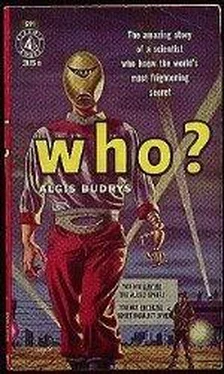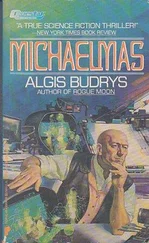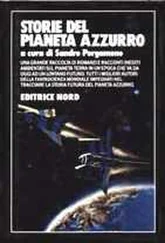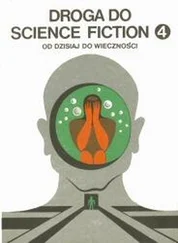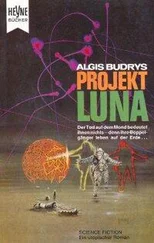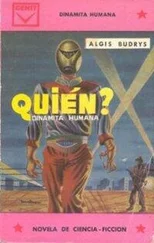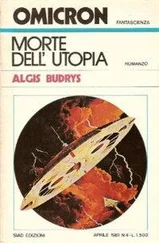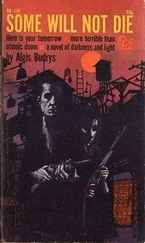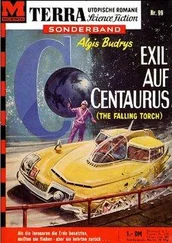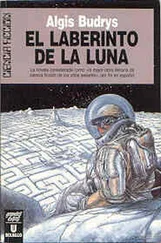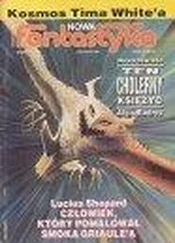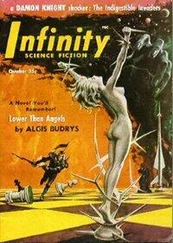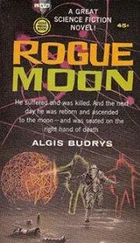Anastas Azarin lifted the glass of lukewarm tea, pressed the spoon out of the way with his index finger, and drank it down without stopping until the glass was empty. He thumped it down in a circle of old stains on the end of his desk, and the spoon rattled. His orderly came in from the outer office, took the glass, refilled it, and set it down on the desk in easy reach. Azarin nodded shortly. The orderly clicked his heels, about-faced, and left the room.
Azarin watched him go, his mouth hooking deeply at one corner in a grimace of amusement that wrinkled all his face before it died as abruptly as it came. During that short moment, he had been transformed — his face had been open, frank, and friendly. But when his features smoothed again, all trace of the peasant, Azarin, left them. It was possible to see what Azarin had taught himself to become during his years of rising through the system: impersonal, efficient, wooden.
He went back to reading the weekly sector situation report, his blunt, nicotine-stained forefinger following the words, his lips muttering inaudibly.
He knew they laughed at him for his old-fashioned samovar. But the orderly knew what would happen to him if the glass ever remained empty. He knew they joked about the way he read. But they knew what would happen to them if he found errors in their reports.
Anastas Azarin had never graduated from their academies: He had never scribbled on their blackboards or filled their copybooks. While they were polishing the seats of their school uniforms on classroom benches, he had been out with his father, hefting an axe and dragging the great balks of timber through the dark forest. While they took their civil service examinations, he was supervising labor gangs on the taiga. While they hunched over their desks, he was in Mandjuria, eating bad rice with the little brown men. While they sat at home with their wives, reading their newspapers and dreaming of promotion, he was in a dressing station, dying of typhus.
And now he had a desk of his own, and an office of his own, and a pink-cheeked, wide-eyed orderly who brought him tea and clicked his heels. It was not their joke — it was his. It was he who could laugh — not they. They were nothing, and he was sector commandant — Anastas Azarin, Colonel, SIB. Tovarishch Polkovnik Azarin, if you please!
He bent over the reports, muttering. Nothing new. As usual, the Allieds kept their sector tight. There was this American scientist, Martino. What was he doing in his laboratory?
The American, Heywood, could not tell. From his post with the Allied Nations Government, Heywood had managed to arrange things so that Martino’s laboratory was placed close to Azarin’s sector. But that was the best he had been able to do. He had known Martino, knew Martino was engaged in something important that required a room with a twenty-foot ceiling and eight hundred square feet of floor space, and was called Project K-Eighty-Eight.
Azarin scowled. It was all very well and good to have such faith in Martino’s importance, but what was K-Eighty-Eight? What good was an empty name? The American, Heywood, was very glib with his data, but the fact was that there was no data. The ANG internal security system was such that no one, even Heywood, could know much of what was going on. That in itself was quite normal — the Soviet system was the same. But the fact was that in the end it would not be some cloak-and-dagger secret agent, with his flabby white skin and his little cameras who would deliver the K-Eighty-Eight to them. It would be Azarin — simple Anastas Azarin, the peasant — who would pull this thing apart as a bear destroys a dead tree to find the honey.
Martino would have to be interrogated. There was no other method of doing it. But for all Novoya Moskva wasted its air on the telephone, there was no quick way of doing it. There was no getting people into Martino’s laboratory. He had to be waited for. Men had to be ready at all times, prepared to pluck him from some dark street on the day he wandered too close to the line, if that lucky accident ever did occur. Then — one, two, three, he would be here, he would be questioned, he would be released, all in a matter of a few days before the Allieds could do anything, and the Allieds would have lost the K-Eighty-Eight. And that devil, the American Rogers, no matter how clever he was, would have been taught at last that Anastas Azarin was a better man. But until that time, everyone — Azarin, Novoya Moskva — everyone — would have to wait. All in good time, if ever.
The telephone on his desk began to ring. Azarin swept up the receiver. “Polkovnik Azarin,” he growled.
“Tovarishch Polkovnik — ” It was one of his staff assistants. Azarin recognized the voice and fumbled for the name. He found it.
“Well, Yung?”
“There has been an explosion in the American scientist’s laboratory.”
“Get men in there. Get the American.”
“They are already on their way. What shall we do next?”
“Next? Bring him here. No — one moment. An explosion, you say? Take him to the military hospital.”
“Yes, sir. I very much hope he is alive, because this, of course, is the opportunity we have been waiting for.”
“Is it? Go give your orders.”
Azarin dropped the receiver on its cradle. This was bad. This was the worst possible thing. If Martino was dead, or so badly damaged as to be useless for weeks, Novoya Moskva would become intolerable.
As soon as his car had come to a stop in front of the hospital, Azarin jumped out and climbed quickly up the steps. He marched through the main doors and strode into the lobby, where a doctor was waiting for him.
“Colonel Azarin?” the wiry little doctor asked, bowing slightly from the waist. “I am Medical Doctor Kothu. You will forgive me — I do not speak your language fluently.”
“I do well enough in yours,” Azarin said pleasantly, anticipating the gratifying surprise on the little man’s face. When it came, it made him even more well disposed toward the doctor. “Now then — where is the man?”
“This way, please.” Kothu bowed again and led the way to the elevator. A brief smile touched Azarin’s face as he followed him. It always gave him pleasure when simple-looking Anastas Azarin proved to be as learned as anyone who had spent years in the universities. It was something to be proud of, too, that he had learned the language while burning leeches off his legs in a jungle swamp, instead of out of some professor’s book.
“How badly is the man injured?” he asked Kothu as they stepped out into another hall.
“Very badly. He was dead for a few moments.”
Azarin jerked his head toward the doctor.
Kothu nodded with a certain pride of his own. “He died in the ambulance. Fortunately, death is no longer permanent, under certain circumstances.” He led Azarin to a plate glass window set in the wall of a white-tiled room. Inside, still wearing the torn remnants of his clothes, incredibly bloodied, a man lay in the midst of a welter of apparatus.
“He is quite safe now,” Kothu explained. “You see the autojector there, pumping his blood, and the artificial kidney that purifies it. On this side are the artificial lungs.” The machines were bunched together haphazardly, where they had quickly been brought from their usual positions against the walls. Doctors and nurses were clustered around them, carefully supervising their workings, and other doctors were busy on the man himself, clamping torn blood vessels and applying compression to his armless left shoulder. As Azarin watched, orderlies began shifting the machines into systematic order. The emergency was over. Things were assuming a routine. A nurse glanced at her watch, looked over at a rack where a bottle was draining of whole blood, and substituted a fresh one.
Читать дальше
